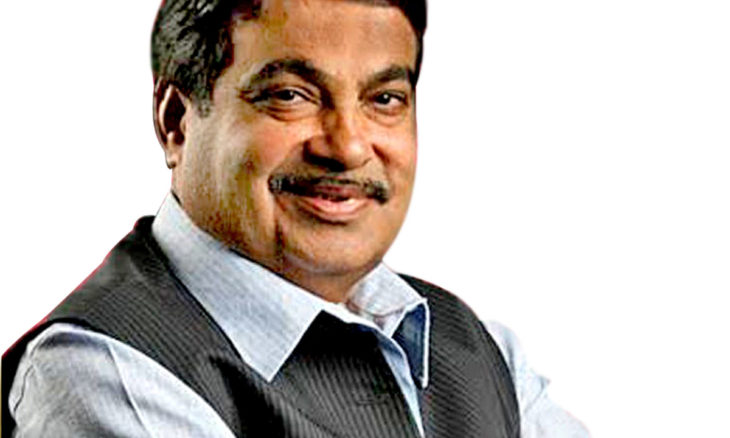
IT is difficult not to admire his tenacity and determination to get infrastructure development work, beset by a multitude of problems and recently stalled by the COVID-19 crisis, going. Nitin Gadkari, Union Minister for Road Transport and Highway, Micro, Small and Medium Enterprises, has never been one to sound retreat, and sounded extremely positive about India’s highway to growth, in conversation with Shrikant Rao.
2020 has been disastrous for the world’s construction sector on many counts, but majorly owing to Covid-19. How do you assess the year gone by as we step into the New Year? What can we expect in terms of project implementation under your ministry in 2021?
It is true overall there have been setbacks to progress made on the project implementation side on account of the slow pace of work arising from the lockdown and other problems. Apart from the traditional hurdles, there have been some recent labour issues affecting highway construction, but that has been sorted out: a lot of work, more than 80 percent, has already started and we expect the momentum to pick up in the coming six months. We have given special incentives and packages to all contractors so that they can increase the pace of road construction. Road construction is a mechanized process that requires equipment and technically skilled manpower and there are therefore cost concerns to be met. Liquidity is certainly a key concern to be addressed – there is currently budgetary shortage both at the Central and State level – if we have to accelerate development. We have also been trying various modes like BOT and EPC and the banks have shown readiness to finance. Then we have also been trying hard to get foreign investors involved.
There is a lot of work to be done. While the average rate of road construction has increased to 30 km per day during 2018-19, the peak being 40 km in a single day, we expect 40 km per day to be achieved as per the target set. Frankly, we don’t expect much speed immediately, at least in the first half of the year, on account of rains, but we certainly hope to pick up speed later.
How do you react to concerns that the ongoing delays in project implementation could lead to further economic shrinkage?
The government’s emphasis has been on building infrastructure across sectors like roads, water, transport, power, and communication is aimed at generating huge employment opportunities which will in the end boost economic growth. We are therefore looking to raise the role of MSMEs in the country’s GDP, that sector contributes about 28 per cent, is a major national employer, and accounts for over 40 per cent of the exports. Our objective is to take MSME contribution to the GDP to 50 per cent, raising its share in exports to about 60 per cent and creating jobs for 50 million people in the next 5 years.
Towards that end, the government is aiming to encourage medium-scale units such as agro-processing industries, food industries, handloom, and handicrafts to increase their turnover. As part of that larger plan, the government has announced several measures to boost lending to small businesses impacted by the COVID-19 crisis. This includes sanctioning of Rs 3 lakh crore for MSMEs. Under this plan, 15 per cent of equity will be provided to MSMEs having a good record to allow them to raise funds in the capital market. With the availability of young talented manpower, raw materials, and technology, and our labour costs being cheap, we are also encouraging overseas investors to invest in Indian MSMEs. I am happy to say the manufacturing industry is getting a good response.
What is the progress made on the New Delhi-Mumbai expressway and other iconic ‘must do’ projects announced by the government?
Overall work on the New Delhi-Mumbai Expressway is picking up with the process of land acquisition now completed. It’s a very important project which will reduce travelling time between the two cities by 12 hours. We hope to complete the project in about two years. Contracts have been awarded and others are in process. We will be looking to maintain the schedule and raise the speed of construction work. Of course, there are important concerns like payment to contractors and stressed financial institutions which we have been trying our best to address. As you know building road infrastructure is one of the key components of our national development plan. There are 22 Green Express Highways and seven Express Highways in the pipeline which will help raise national productivity while leading to creation of millions of jobs.
How do you see these projects as differentiators?
These game-changing highway and expressway projects have been designed to meet the demand for connected mobility, and are being constructed with the best available global digital technologies. The road development being planned by the government is environmentally sustainable, offers safe and speedy travel, pollution-free, and designed for electric and alternate fuel vehicles. Efforts are on to introduce a long-term integrated fuel roadmap, defining the phase-wise introduction of different fuel options and the infrastructure necessary to support it. All of these will factor in global best practices, the prospect of localisation, and cost competitiveness. What is very important is that these quality road projects and modernization of our transport systems will further contribute to the growth of the automotive sector. All of these developments put together are very important to the realization of the Prime Minister’s vision to make India a $5 trillion economy. With projects picking up, I am quite positive India will very soon be back on the road to growth.

